cOAlition S has taken good note of the position paper by five fully Open Access publishers that criticizes the low transformational potential of Transformative Agreements, while calling for prioritizing support mechanisms for native Open Access publications and alternative peer-review platforms. ESAC has recently published a response clarifying the nature and function of Transformative Agreements.
As stated in the Plan S Principles and Implementation guidance, cOAlition S Funders acknowledge the existing range of high-quality Open Access journals and platforms and support the diversity of business models for Open Access journals and platforms. Where applicable, cOAlition S Funders or research institutions cover Open Access publication fees. This is a financial commitment of cOAlition S funders that primarily benefits fully Open Access publishers. For example, in 2017-2018, Wellcome spent £2.8m in fees for fully Open Access journals. The Funders’ aim is to move as many journals to Open Access as possible, in order to enable their grant holders to publish Open Access in the journals of their choice.
Despite the perceived shortcomings that some Transformative Agreements may present, the Funders continue to view such deals as a powerful tool in the transformation of subscription journals towards full and immediate Open Access. The Funders note that support for Transformative Arrangements ends at the end of 2024. We anticipate that all agreements with publishers after that date will be of the ‘pure publish’ type.
We observe that libraries and consortia negotiating Transformative Agreements also have Open Access publishing agreements with many of the fully Open Access publishers. By way of example, the Max Planck Digital Library has agreements with Copernicus, Frontiers, eLife, PLOS, MDPI, IOPP and many other fully OA publishers. JISC has publishing agreements with fully Open Access publishers Frontiers, IOPP, Ubiquity Press, the Open Library of Humanities, as well as SCOAP³, whilst the University of California has OA publishing agreements with PLOS and JMIR.
To stimulate competition and fair pricing, cOAlition S advocates price transparency of Open Access services that allow for price comparisons across services and business models. We recognize that the fully Open Access publishers who have signed this position paper have been very open on price transparency and that they have established best practices that will become compulsory under Plan S. We will shortly publish additional policies that support the transition to full and immediate Open Access.
cOAlition S publishes today, 27 March 2020, a call for an informed study containing an analysis and overview of collaborative non-commercial (aka “Diamond”) publishing journals and platforms. The study is financially supported by Science Europe. The objective is to identify ways to support publishing initiatives wishing to implement Diamond business models.
The study should address the following objectives:
- Provide an analysis of the global landscape of collaborative non-commercial journals and platforms, charting their variety, scope, and impact in various disciplines and regions, their scientific and editorial quality assurance practices, and the challenges they face.
- Identify the extent to which authors and their collaborators do publish in non-APC Open Access journals and platforms, and trends over time
- Identify the current funding models for collaborative non-commercial journals and platforms.
- Identify scholarly publishing sectors where efficiency gains, collaboration, and training in terms of shared services or infrastructure are required.
- Identify the main challenges faced by collaborative non-commercial journals and platforms in meeting the needs of Open Access policies and industry-standard operational and technical requirements and formulate recommendations to overcome these challenges.
- Provide an action plan and recommendations for principles and funding mechanisms with agreed, equitable, transparent, efficient and effective ways for a range of actors to co-finance relevant collaborative non-commercial non-APC journals and platforms.
Responding to this call
The full description of the rationale and requirements for this call as well as the application form are available within the “Diamond OA study pack”. Providers who wish to apply should complete the template (pages 4-6) and send it to info@coalition-s.org, no later than 24 April 2020.
- UPDATE 1: Exploring collaborative non-commercial publishing models for Open Access: tender results (9 June 2020)
- UPDATE 2: Diamond unearthed: shining light on community-driven Open Access publishing (9 March 2021)
Considering the COVID-19 pandemic, and the fact that all stakeholders in the scholarly communication system are focusing their efforts on supporting initiatives to address this situation, the cOAlition S Executive Steering Group has decided to slightly delay publication of the final version of the criteria for Transformative Journals.
We had previously committed to publish this information no later than the end of March 2020 but now plan to publish this no later than the 10th April 2020.
We hope this delay will give time for colleagues to adjust to new ways of working, but at the same time, we want to give publishers the maximum amount of time to consider this model, in advance of the implementation of Plan S, in January 2021.
Johan Rooryck, cOAlition S Champion

